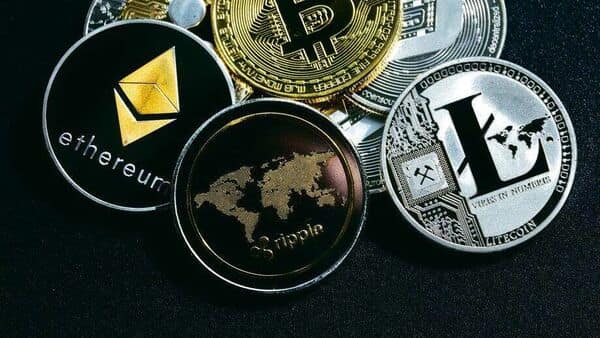- There is no clarity on crypto regulations in India, making the legal status of such deposits doubtful
The crypto industry has been coming out with products that mimic offerings in the traditional asset categories. Thus far, crypto exchanges offer systematic investment plans (SIPs) and crypto token baskets just like mutual funds. Then, there is the ‘crypto deposit’, touted to be similar to a bank fixed deposit. Since these products are not regulated, their features and interest differ vastly from exchange to exchange.
Generally, under the ‘locked’ option of crypto deposits, customers have to commit their crypto assets for a stipulated time, which could be either 7, 30, 60, 90 days and so on. They will earn a fixed return at a predetermined interest rate for the duration selected. The interest payout—which could be as low as 1% per annum or as high as 24%—varies depending on the type of crypto asset and the exchange. The interest earned is credited to the wallet at the end of the tenure. However, customers will lose any interest earned if they decide to withdraw the asset before the lock-in period expires.
Usually, ‘blue-chip’ cryptos such as bitcoin, ethereum and cardano earn a lower interest rate, while smaller tokens earn more.
CoinDCX recently launched its yield programme, ‘Earn’, where customers can earn interest on their idling crypto assets. The exchange deploys the assets across multiple yield- generating opportunities such as margin trading, lending or staking to generate returns.
Keep in mind that unlike bank fixed deposits, in the crypto ‘deposit’ feature, the value of the principal amount can change based on the token’s price. However, certain platforms offer lock-in for principal amount as well.
Bharat Vivek, co-founder and COO of Kassio, a global crypto asset management platform, said, “In the Kassio earn programme, if you invest in crypto fixed deposits, your initial principal amount will remain the same (in rupee terms) for the duration of the fixed deposit.”
Platforms also claim that they have introduced security features such as cold wallet storage and insurance up to a certain level to ensure safety of the assets of investors.
“Deposits are managed through the balance of the hot and cold wallet—99% of the funds are stored in the cold wallet, which is powered by the best custody solution to reduce the exposure of any potential security risks,” said Vivek.
A key difference between bank FDs and crypto FDs is government safety. As per the Deposit Insurance and Credit Guarantee Corporation (DICGC) Act, each depositor in a bank is insured up to a maximum of ₹5 lakh for both principal and interest amount held. However, no such guarantee is available for a crypto deposit.
Financial advisors have warned against the use of these investment instruments as they are typically not a fixed deposit but a lending product. Further, there is no clarity on current crypto regulations in India, making the legal status of such deposits doubtful. “Investing in cryptocurrency is a big risk because it’s still not regulated in India. Also, as an investor, you don’t know where your funds are being lent out. Investors should realize that this is not akin to a fixed deposit,” said Mrin Agarwal, founder director, Finsafe India Pvt Ltd.
Investors should also note the taxation angle when it comes to crypto ‘fixed deposits’. “Right now, the law hasn’t addressed all these issues. But it is clear that the income from this would be taxable. So if you have any income, which is in the nature of interest, then you have to include that under ‘income from other sources’, and pay tax on it according to the slab rate. This, assuming that the investor has not exited crypto, because the moment you transfer the crypto, the 30% tax rate would kick in,” said Archit Gupta, founder and CEO of Clear.
Log in to our website to save your bookmarks. It’ll just take a moment.
Oops! Looks like you have exceeded the limit to bookmark the image. Remove some to bookmark this image.
Your session has expired, please login again.
You are now subscribed to our newsletters. In case you can’t find any email from our side, please check the spam folder.
This is a subscriber only feature Subscribe Now to get daily updates on WhatsApp

